Saturday, October 16, 2021
Room 1: Community, Placemaking, Human behavior and design intervention by Dr. Supitcha Tovivich, Faculty of Architecture, Silpakorn University
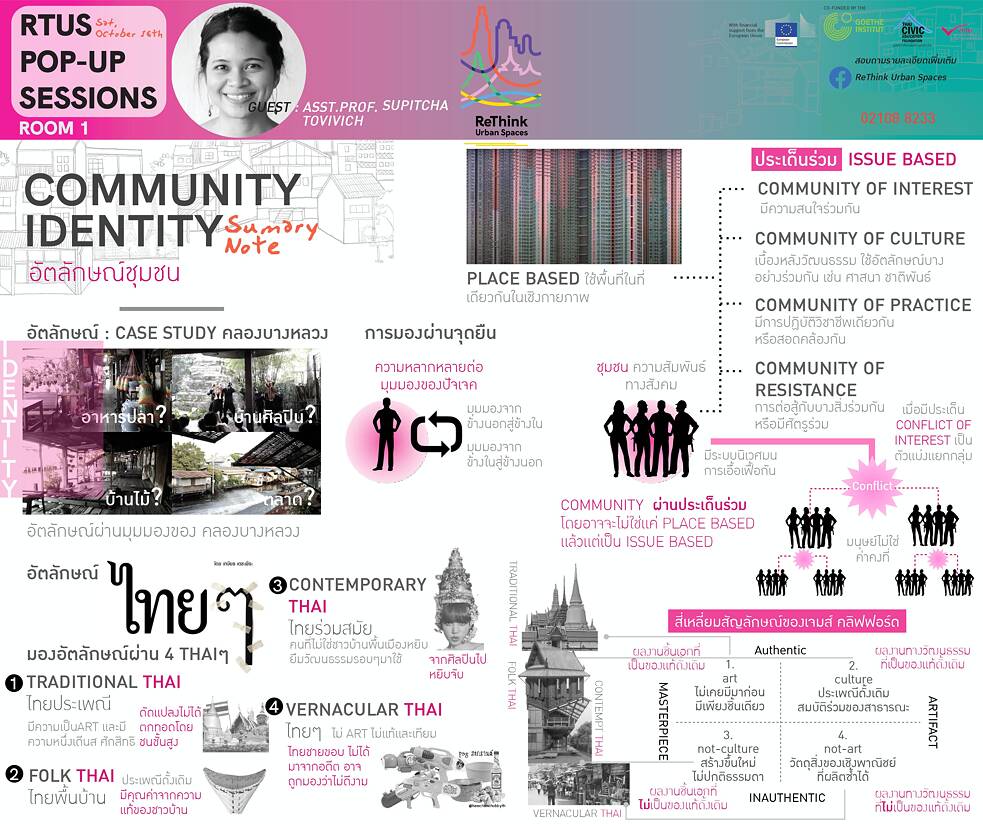
Knowledge Market Pop-Up Sessions: Saturday, October 16, 2021 | © RTUS
The speaker showed the meaning of community and identity to the participants. They explored a collaborative process of creating social spaces with an understanding that designs can affect human behaviors.
Room 2: Youth and City Building by Dr. Rawee Hanpachern, Faculty of Architecture, Khon Kean University
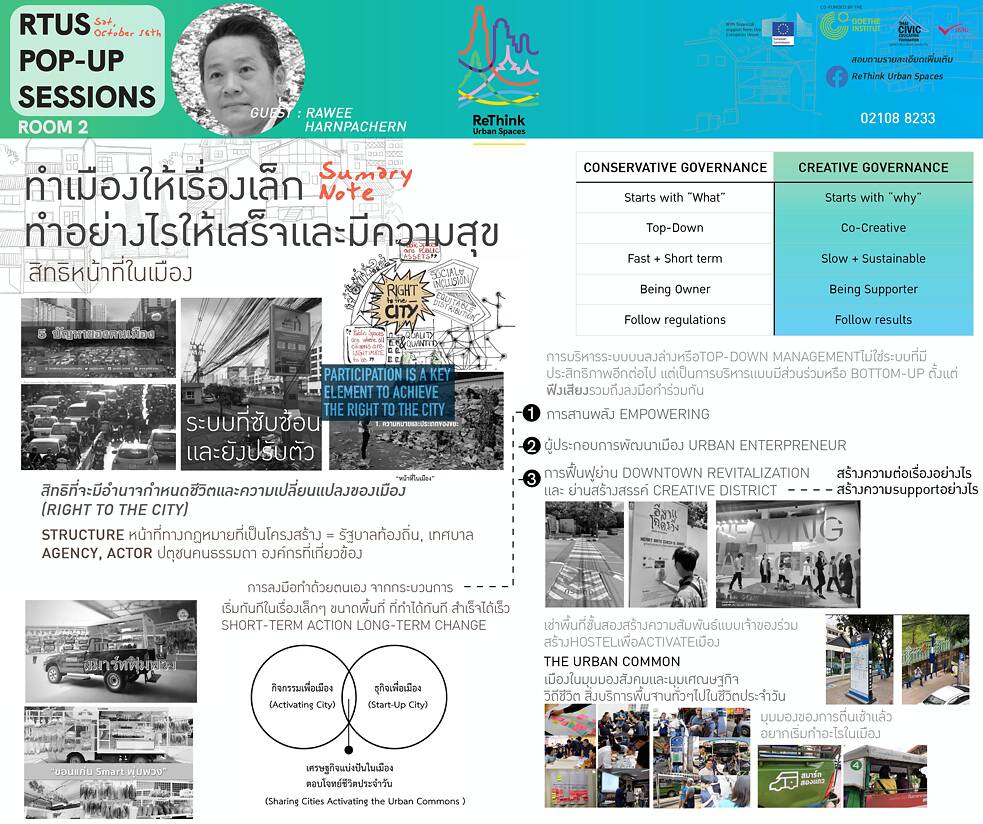
Knowledge Market Pop-Up Sessions: Saturday, October 16, 2021 | © RTUS
The best development is when the people, especially the youth can take part under an instruction of the government. It could start with a small project. Private sectors can help make it a revenue generating project. A small change with success can increase reliability to the group.
Room 3: A movement on the city of the people” Inthira Wittayasomboon from Feel Trip Project and Ponthep Buranaburidech
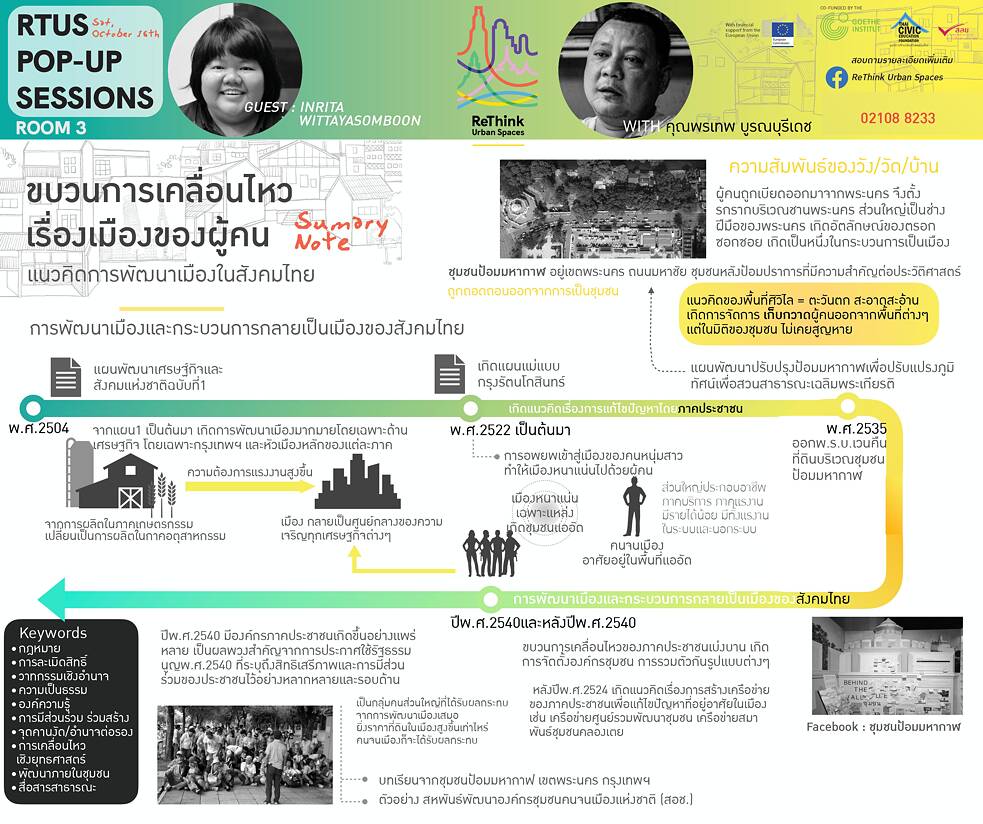
Knowledge Market Pop-Up Sessions: Saturday, October 16, 2021 | © RTUS
Change the idea of city development in Thai society. Not only the government has a role in city development but the people should share that along with the movement of countless civil groups. They have been involved in solving local problems, negotiating and promoting policies.
City belongs to everyone and it is not only a physical space but also collective ideas, beliefs and traditions. It also relates to the social relationships of diverse people who are exchanging, sharing, creating and developing the city.
To design for everyone, everyone should have a role. There should be a clear foundation structure. The government is working on a point and many small points make a difference. Everyone has a different idea of a city but there should be a mutual point. All should come together and find this mutual point with the help of a middleman. The government could be an obstacle in developing public spaces.
Room 4: Public Space for All by Yossapon Boonsom and Kwanchanok Kongchoksamai, Shma Design
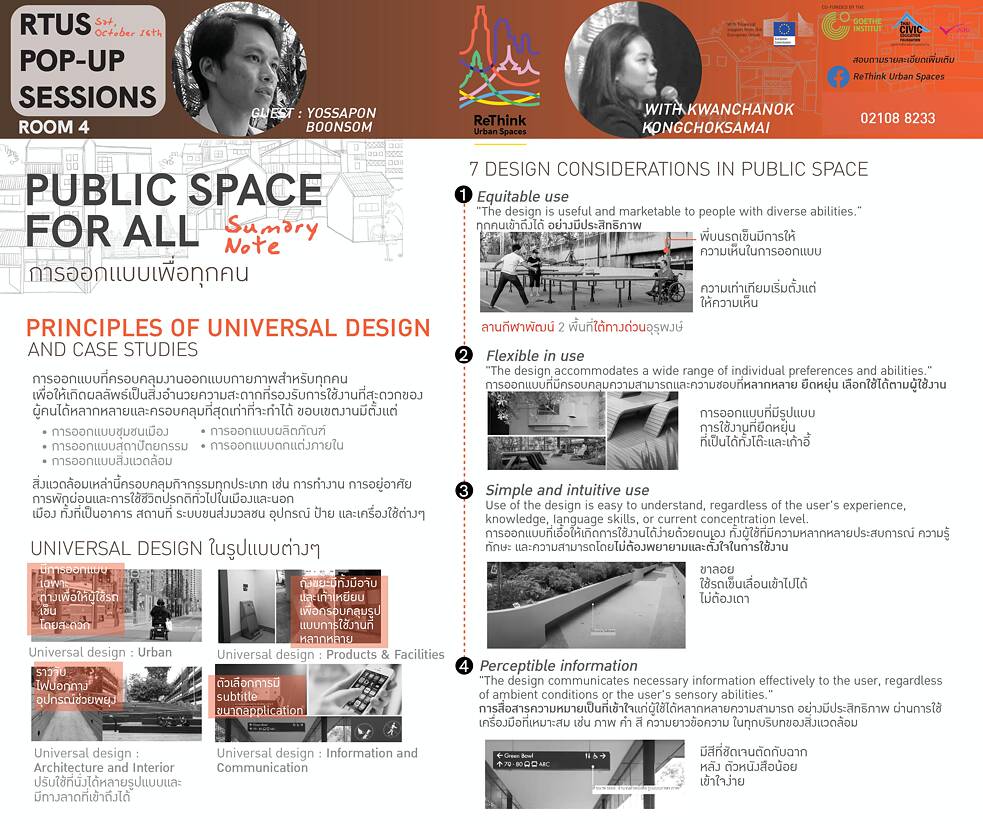
Knowledge Market Pop-Up Sessions: Saturday, October 16, 2021 | © RTUS
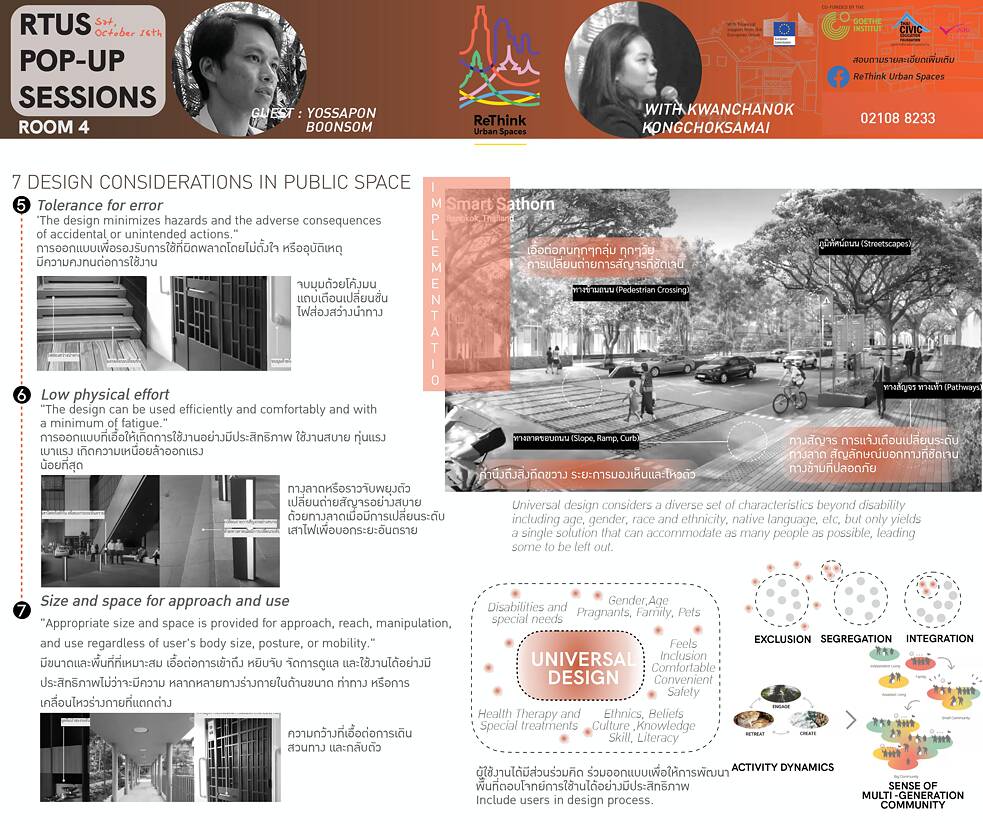
Knowledge Market Pop-Up Sessions: Saturday, October 16, 2021 | © RTUS
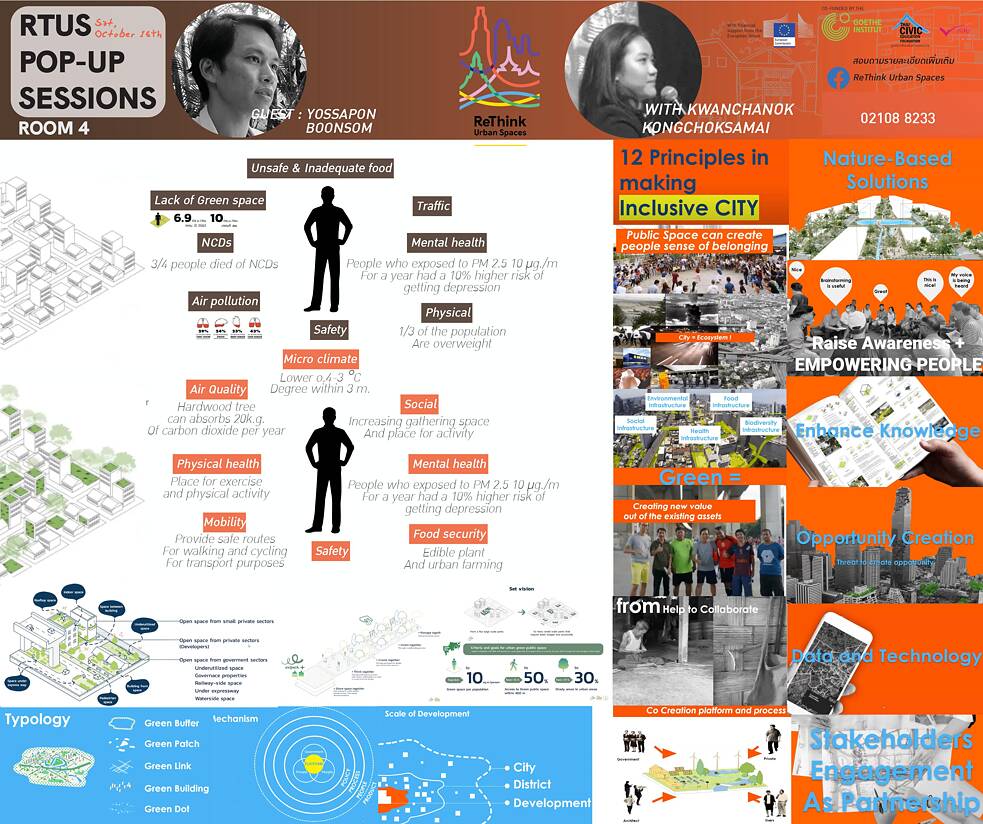
Knowledge Market Pop-Up Sessions: Saturday, October 16, 2021 | © RTUS
To create public spaces for all is to design physical spaces to cater for all needs of the people who are diverse physically and culturally. The aim is to facilitate everyone to live their lives more conveniently and comfortably in terms of space planning, accessibility, flexible and durable materials, directions and easy to understand symbols without the language barriers. It should have a multi-purpose space where they can create a society to coexist despite the physical challenges and cultural differences. An understanding of needs, behaviors and types of diverse users allow the design to cater the usage effectively and help connect the people with public spaces and among themselves.
Room 5: Environment/ disaster management/ food security-urban farming by Warong Naivinit, Faculty of Science and Technology, Kanchanaburi Rajabhat University
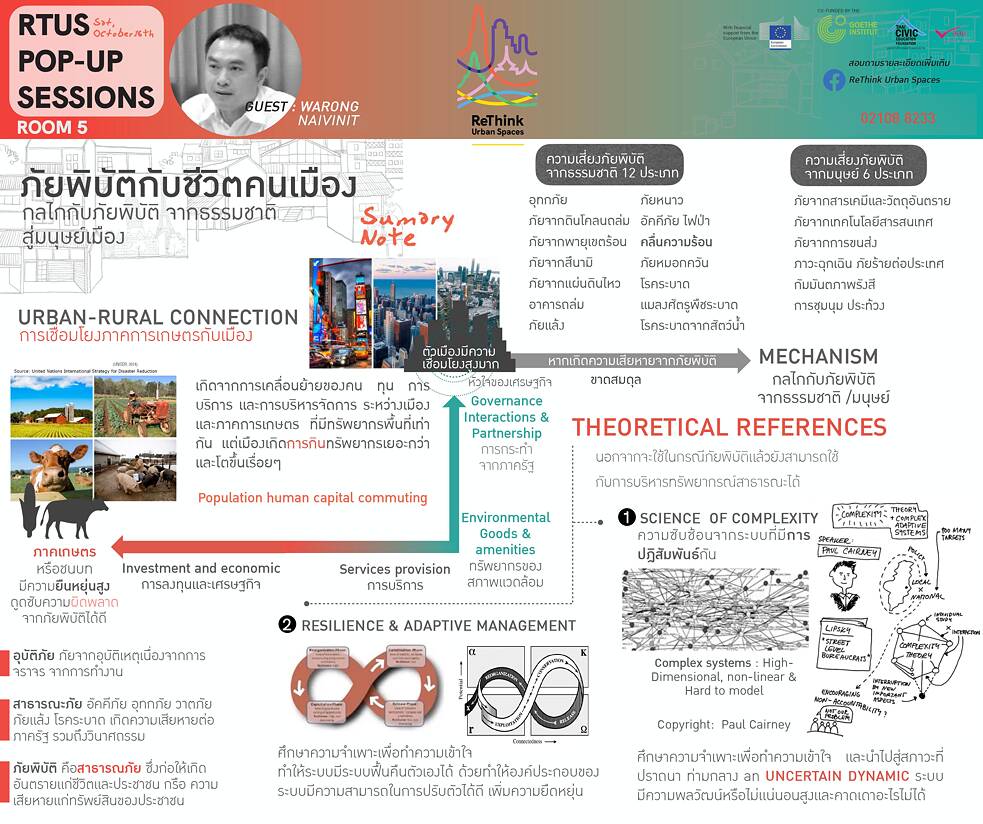
Knowledge Market Pop-Up Sessions: Saturday, October 16, 2021 | © RTUS
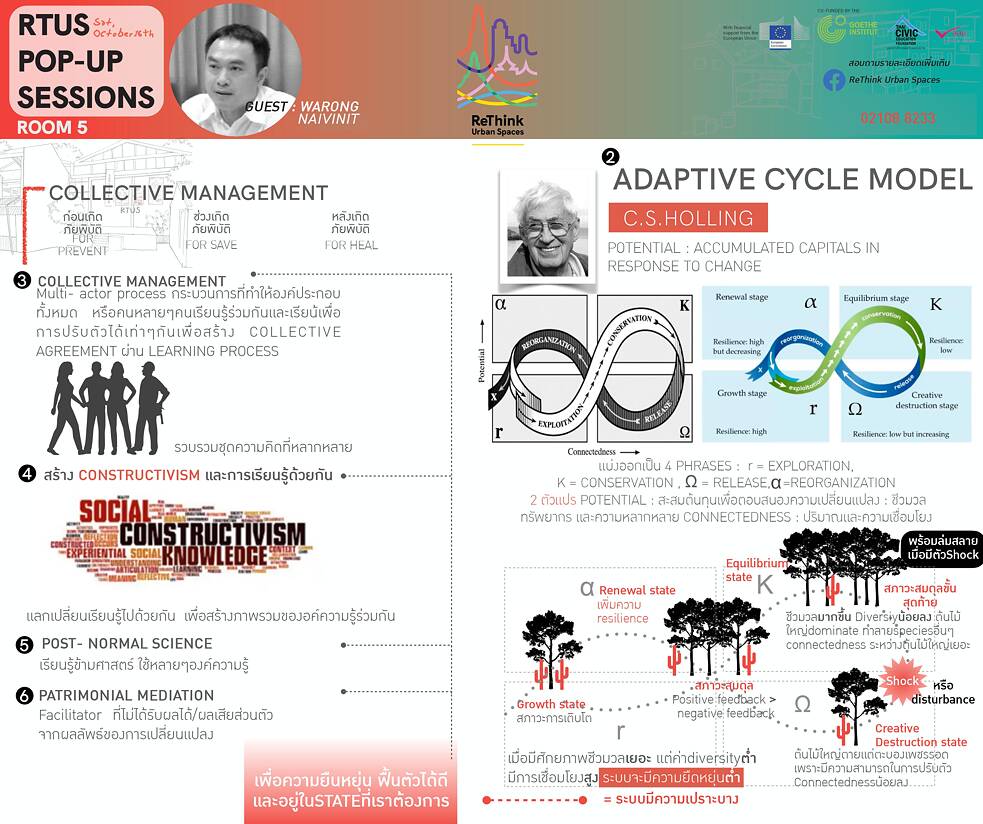
Knowledge Market Pop-Up Sessions: Saturday, October 16, 2021 | © RTUS
More frequent disasters recently have been intensifying. How are they affecting the livelihood of the people in the city? How should we implement proactive and receptive strategies to create efficiency, to bring positive impact to the city ecology and to mitigate negative impact to other ecologies outside the city?
In order to recover from natural and human-made disasters, there should be an agreement among the people and the government. Awareness should be promoted in society without the domination of the government. The government should facilitate and act as a middleman to create an understanding with civil society. All disasters are connected and we need effective management.